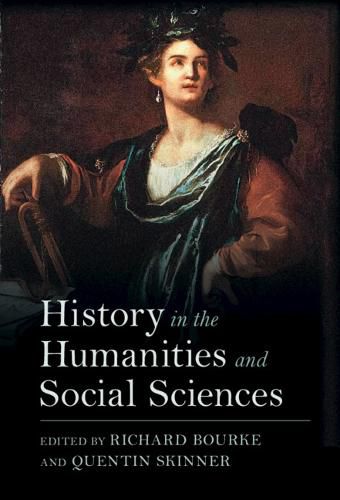Readings Newsletter
Become a Readings Member to make your shopping experience even easier.
Sign in or sign up for free!
You’re not far away from qualifying for FREE standard shipping within Australia
You’ve qualified for FREE standard shipping within Australia
The cart is loading…






This inter-disciplinary volume explores the relationship between history and a range of disciplines in the humanities and social sciences: economics, political science, political theory, international relations, sociology, philosophy, law, literature and anthropology. The relevance of historical approaches within these disciplines has shifted over the centuries. Many of them, like law and economics, originally depended on self-consciously historical procedures. These included the marshalling of evidence from past experience, philological techniques and source criticism. Between the late nineteenth and the middle of the twentieth century, the influence of new methods of research, many indebted to models favoured by the natural sciences, such as statistical, analytical or scientific approaches, secured an expanding intellectual authority while the hegemony of historical methods declined in relative terms. In the aftermath of this change, the essays collected in History in the Humanities and Social Sciences reflect from a variety of angles on the relevance of historical concerns to representative disciplines as they are configured today.
$9.00 standard shipping within Australia
FREE standard shipping within Australia for orders over $100.00
Express & International shipping calculated at checkout
This inter-disciplinary volume explores the relationship between history and a range of disciplines in the humanities and social sciences: economics, political science, political theory, international relations, sociology, philosophy, law, literature and anthropology. The relevance of historical approaches within these disciplines has shifted over the centuries. Many of them, like law and economics, originally depended on self-consciously historical procedures. These included the marshalling of evidence from past experience, philological techniques and source criticism. Between the late nineteenth and the middle of the twentieth century, the influence of new methods of research, many indebted to models favoured by the natural sciences, such as statistical, analytical or scientific approaches, secured an expanding intellectual authority while the hegemony of historical methods declined in relative terms. In the aftermath of this change, the essays collected in History in the Humanities and Social Sciences reflect from a variety of angles on the relevance of historical concerns to representative disciplines as they are configured today.